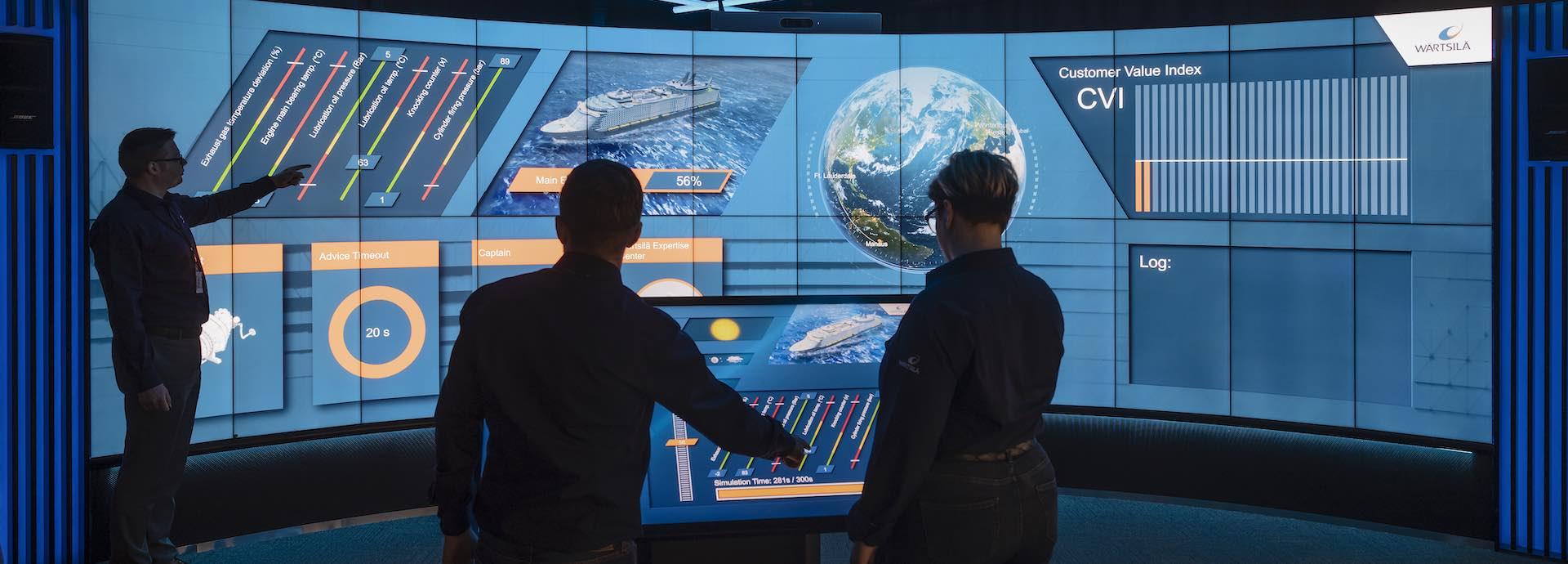

While the maritime sector has started embracing digitalisation in recent years, data exchange is still not wide scale. Why is it important? Do we need universal, reliable standards? Or even an open source digital platform?
Shipping a container of avocados from Mombasa to Rotterdam recently took no less than 200 electronic and paper information exchanges, involving 30 parties and 100 people.
“This is why universal maritime standards for exchanging data need to be adopted,” says Nick Chubb, Founder of Thetius, a UK-based maritime research and intelligence firm. “A standard way of sharing data will make shipping goods like these much easier and more efficient.” He believes creating these standards is challenging, but once they are created, it’ll help all parties in the industry.
When a ship enters a port, the ship operator has to show a lot of data regarding the cargo, crew, vessel, and the journey. “Right now, every shipping company and port handles data in different ways,” Chubb says. “A lot is still being done on paper and different types of files. This is time-consuming and mistakes are easily made.”
Markus Mannevaara, Director of Software Development at Wärtsilä Voyage in Helsinki, agrees. He says efficient data transfer is essential for the sector. “Data impacts every aspect of our industry, from machinery to cargo and crewing ships. Data standards will make a lot of things easier,” he says.
The discussion about setting universal standards in the shipping industry has been ongoing for years. Many standards already exist, but none have been widely adopted across the sector.
Earlier this year, the International Maritime Organisation created a partnership with the World Customs Organization, the United Nations Economic Commission for Europe and the International Organization for Standardization to support data flows in the maritime sector.
Open software platforms
Mannevaara thinks the initiative is fantastic but “not enough.”
“Data standards are necessary, but we need open source digital platforms, too.”
Mobile phones have software platforms like Android, he explains, but nothing like this exists in the shipping industry. “There are digital platforms, but specific companies own them and their equipment is tied to their software, so it’s not open source.” However, he believes this will soon be an issue of the past.
“Many companies are now trying to build digital platforms,” Chubb continues. “But there are no dominant players. And I’m not convinced there will ever be one that is open source.”
“If there are standards, you can use any platform.” As an example, he also mentions mobile phone operating systems. “If you use Android, you can still call someone who uses iOS or another system, because they use the same standards.”
Competition, costs and cybersecurity
However, many shipowners, managers, equipment manufacturers and others in the maritime industry are reluctant to share their data and collaborate on standards.
Broadband costs are one of the reasons. There’s no internet connection at sea. Everything is done by satellite, which is traditionally very expensive.
“It is a hindrance,” says Mannevaara, “but the costs are rapidly going down.”
Cybersecurity issues are also regularly mentioned as a reason not to share marine data. “It’s a risk, whether you share data or not,” says Chubb. “But if you have the technical skills to share data, you’ve probably protected your company well.”
Most companies are hesitant to share data because they fear competition. Chubb understands this but argues that in the end, it is not a smart way of doing business. Mannevaara agrees: “Data sharing is inevitable. The companies that don’t will eventually be side-lined.”
Beyond imagination
Thetius has the mission ‘to enable innovation in maritime’ but “innovations move slower without standards,” says Chubb.
It is difficult for innovators like software engineers to get access to data now. Chubb explains using the example of a company that wants to create an application for fuel optimisation and needs data to create this. Because of the lack of standards, the data that is available is not uniform and therefore hard to understand for people outside the industry.
Mannevaara is hopeful though. “In 2007, very few people expected we’d all be browsing the internet on our phones, or using services like WhatsApp, Uber or Airbnb. It was still science fiction. They all happened because of digital platforms. In the marine sector too, we will see many applications we can’t imagine right now.”
Did you like this? Subscribe to Insights updates!
Once every six weeks, you will get the top picks – the latest and the greatest pieces – from this Insights channel by email.


